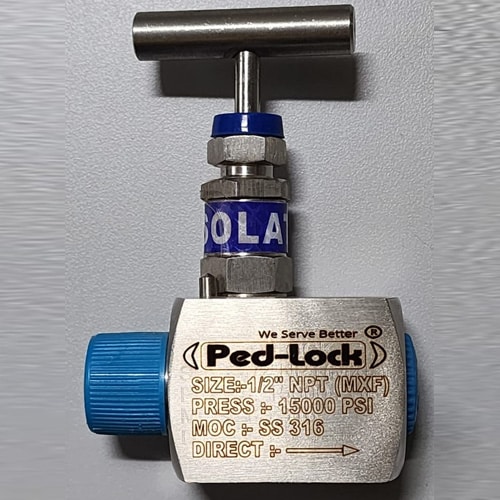Top Quality of Instrument needle valve – common information
Instrument Needle valve (depending on the type of valve and stem applied) are used to command flow rates, to open or close the flow completely and for measuring media. As against to ball valves, the needle valve is opened and closed by turn a knob many times. The procedure is gradual, no unexpected rise or drop of pressure occurs, which is critical mainly for high pressure gas demands and high flow velocity. The needle valve, with a exceptional regulating stem in particular, can be used to command the flow rate in a system.
When an application requires really correct dosing of a medium, then metering needle valve are used. In this type of valves the medium flows through a scaled hole in the place of the valve. A tapered needle is in that place. Motion of the needle closes or opens the flow granting precise dosing of the medium by simple accomdation with the knob.
The construction of precision Instrument needle valve is tested for production at burst pressure and at test pressure; stem is strom-out proof; Every ball valve is tested with nitrogen at 1000 psi (69 bar) for leaks in the body and seals to verify leak-tight shut-off and extended service life. The valves are created of corrosion-resistant materials, whereas the right sealing material can be selected from many options so as to match any medium, pressure or temperature. Come with several various connections: threaded, join-in and double ferrule connectors (LET-LOK®).
Special features of the needle valve
- Low-wear design required to non-rotating spindle tip in the bonnet
- Low torque and smooth operation of valve hold even at high pressure
- Enhanced safety expected to blow-out-proof cover design
Advantages of Using Instrument Needle Valve:
- Readily available and provide a wide variety of sizes, shapes, combinations, and materials
- Ability to correctly control the rate of flow makes this design extremely flexible
- Highly precise yielding increased ability and increased safety
- The stainless steel needle valves are rust-free and waterproof in high-temperature and high-pressure applications
Disadvantages of Using Instrumentation Needle Valves:
- The design prevents optical determination of valves open or closed position
- They experience pressure waste due to the heightened restriction of fluid flow
- The seat and the needle could be damaged with hang solids present in the fluid
- The place of the needle valve could be harm due to excessive turning force while closing the valve

